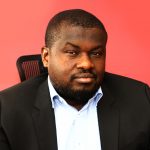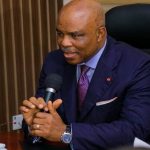...To get all news updates, Join our WhatsApp Group (Click Here)
Also Join our WhatsApp Channel (Click Here)
At the last count, the upstream oil exploration and exploitation company, Seplat Petroleum Development Company Plc, has made several puzzling moves to evade repayment of an outstanding $85.8 million loan facility it owes Access Bank Plc. It is highly unconscionable to borrow depositors’ money from a bank, to ostensibly enhance business growth but only to conceive strategies to evade repayment on the terms agreed.
While filibustering maybe a useful strategy used to delay, divert and stifle a process from being brought to conclusion in the political arena – in the world of corporate governance and accountability, this nimble species of obfuscation is hardly expedient.
Seplat has boldly denied responsibility for a loan facility its sister entity – Cardinal Drilling Services Ltd. – acquired. Secondly, it has sought judicial protection/fight-back. Thirdly, it has gone after Access Bank’s counsel/receiver/manager. Fourthly, it has apparently deployed the media to muddy the water wherein subtle allegations of corporate bullying and even hostile takeover narratives are spun. Quirky allegations of arbitrariness or irrationality by Access Bank also clearly belong to the underemployed spin doctors of the debtor.
Significantly, these gaming have not shifted the substantive matter: repayment of the outstanding $85.8 million loan facility, Orjiako through his company CDS sourced from defunct Diamond Bank Plc, now acquired by Access Bank. Repayment of this outstanding loan could have leveraged the image of Seplat and even positioned them for further facilities from Access Bank.
It could be recalled that after its formal merger with mid-tier rival Diamond Bank Plc., in April 2019, following due regulatory approval, Access Bank Plc. acquired all the assets and liabilities of the defunct banking entity. This positioned Access Bank to pursue recovery of all outstanding debts including the $85.8 million owed it by Cardinal Drilling Ltd., a subsidiary entity of Seplat Petroleum Development Company Plc. which chairman is billionaire business mogul, Dr. ABC Orjiakor.
This legitimate move by Access Bank to recover the outstanding $85.8 million owed by Cardinal Drilling Services Ltd. (Seplat’s sister company), in effect, has spawned all shades of seemingly adroit maneuvering by the upstream exploration and production entity which has distanced itself from its sister entity, Cardinal Drilling Ltd and ultimately is denying responsibility for the loan.
Since Access Bank had engaged the services of Ogunba law firm, Kunle Ogunba & Associates as the counsel/receiver/manager to recover the loan obtained by Cardinal Drilling Services Limited, from Diamond Bank (now Access Bank) on behalf of Seplat Petroleum Development Company, the upstream petroleum behemoth has seemingly made adroit moves to thwart the loan recovery. This is at the heart of the festering dispute.
First, Seplat specifically denied it benefitted from the loan obtained by Cardinal Drilling Ltd. Secondly, the petroleum company targeted Kunle Ogunba (SAN), Access Bank’s counsel/receiver/manager and petitioned the Legal Practitioners Privileges Committee (LPPC) and the Legal Practitioners Disciplinary Committee of the Nigerian Bar Association (NBA) to sanction a Senior Advocate of Nigeria, Mr. Kunle Ogunba, for alleged gross misconduct and unethical practices contrary to the Rules of Professional Conduct for Legal Practitioners 2007.
In the petition to the LPPC, which was equally copied to the Nigerian Bar Association (NBA) President, the company accused Ogunba of violating Rules 1, 15, 24, 30 and 32 of the Rules of Professional Conduct 2007 and urged sanctions against the senior advocate in line with paragraph 55 of the Rules of Professional Conduct.
For good measure, Seplat also accused Ogunba of obtaining ex parte orders which facilitated the seizure of No. 16A Temple Road, Ikoyi Lagos, housing Seplat’s corporate headquarters, with “patently false” claims, adding that he deliberately misled the court and failed to adduce any documents to support the claims. But significantly, this move is not the beef of the disputations.
But significantly, documents obtained from the court revealed the processes filed by Access Bank showed the plaintiff provided proof that Seplat benefitted from the loan. It was shown that after Cardinal Drilling obtained the loan and disbursed it, the company passed the obligation on to Seplat. According to the documents, Seplat used its subsidiary firm, Cardinal Drilling to obtain the loan from Access Bank, adding it utilised the loan obtained by Cardinal Drilling from the bank.
For instance, Access Bank disclosed that when Cardinal Drilling got a tranche of $30million, in less than 24 hours, it transferred the money to Seplat, stating that each time Cardinal Drilling was trying to repay the loan, Seplat would have to transfer funds to it for onward transfer to the bank.
More, even the company’s statement of account exhibited in court showed movement of funds and whose accounts were debited and credited. The bank has details of Seplat transferring funds into Cardinal Drilling’s account, which in turn would transfer same to Diamond Bank (Access Bank) as loan repayment. Cut to the bone, Seplat is the real debtor, which was why the bank and its lawyers joined Seplat in the debt recovery suit and obtained and executed the order against it, which is now a subject of appeal.
It could also be recalled that Justice Aikawa, despite objections by Seplat’s lawyers, held: “In my view, all these issues touch the substance of the case and should therefore be reserved for substantive trial. An attempt to delve into any of them at this stage has the potential and danger of determining substantive issues at this interlocutory stage, a tendency which has been frowned upon by the appellate courts. There is no evidence of suppression of any material facts by the plaintiff in this application.”
Clearly, beyond Seplat’s insistence that being joined as a debtor by Access Bank lacks merit and its resort to NBA’s LPPC and LPDC, seeking to unhorse Ogunba and undermine the effort of Access Bank in seeking to recover legacy debts following its acquisition of Diamond Bank, the substantive matter, according to the consensus of legal pundits, remains intact.
Unfortunately, the emerging perception now is that rather than Orjiako’s Cardinal repaying the loan or awaiting the outcome of its appeal on the matter, it is pushing to tarnish the image of Ogunba and intimidate him by generating petitions against him in a scheme to discourage him as Access Bank-appointed receiver-manager.
Also apparent is the fact that the petitioner has also embarked on media warfare to paint Ogunba in a bad light and pressure the LPPC and the NBA to sanction him. Many view this moves as fundamentally diversionary. More, allegations of corporate bullying and efforts at hostile takeover of Seplat are filtering in from the media. These are of course contrived narratives which deliberately ignore the core issues.
Why not just commence defrayment of the outstanding loan to an entity of which the parent company Dr. Orjiakor chairs? What will all the rigmarole serve? The core of this whole is pay back your loan. What’s so difficult to understand here?
Deploying corporate filibustering or subterfuge to frustrate the debt recovery as Seplat is gaming will negatively impact the critical banking sector and defeat the essence of granting such facilities to aid business growth. For Access Bank, the lender in this instance, it is a costly project. The cost covers time for debt recovery and the need to make greater loan provisioning, which reduces profitability and capital resources for lending.
It could also be regretfully recalled that defunct Diamond Bank Plc., an iconic bank comparable to Eastern Nigeria’s African Continental Bank (ACB), went under because of the recalcitrance of borrowers like Orjiako’s Cardinal. Defunct Diamond Bank considerably aided many businesses from the South-East. This particular debt was part of the huge debt overhang that aided the sinking of Diamond Bank. Today, for that region, it is a collective loss.
But a fact that many don’t know is that Access Bank Plc that acquired Diamond Bank is not about allow recalcitrant debtors flee from their obligations. It is a strict, law abiding, disciplined organisation and top industry player and have deployed all requisite legal means to recover what is due to it. In this case, the controlling shareholder of Cardinal Drilling Ltd must pay up.
It’s then little wonder that following the upturning of the order of the Federal High Court by the appellate court, Access Bank has filed a notice of appeal at the Supreme Court to challenge the Appeal Court, a move that enjoys the consensus of many legal pundits who see it as the way to go.
Cut to the bone, the new sponsored media narratives of corporate bullying and laughable hostile takeover are essentially boorish spins that will lead nowhere. The bottom line is that corporate responsibility must be respected and facilities obtained for business expansion and growth must be repaid. The danger here is that if this drama drags further, Orjiako might actually start believing himself.
By Louis Achi
You can get every of our news as soon as they drop on WhatsApp ...To get all news updates, Join our WhatsApp Group (Click Here)
Also Join our WhatsApp Channel (Click Here)
















